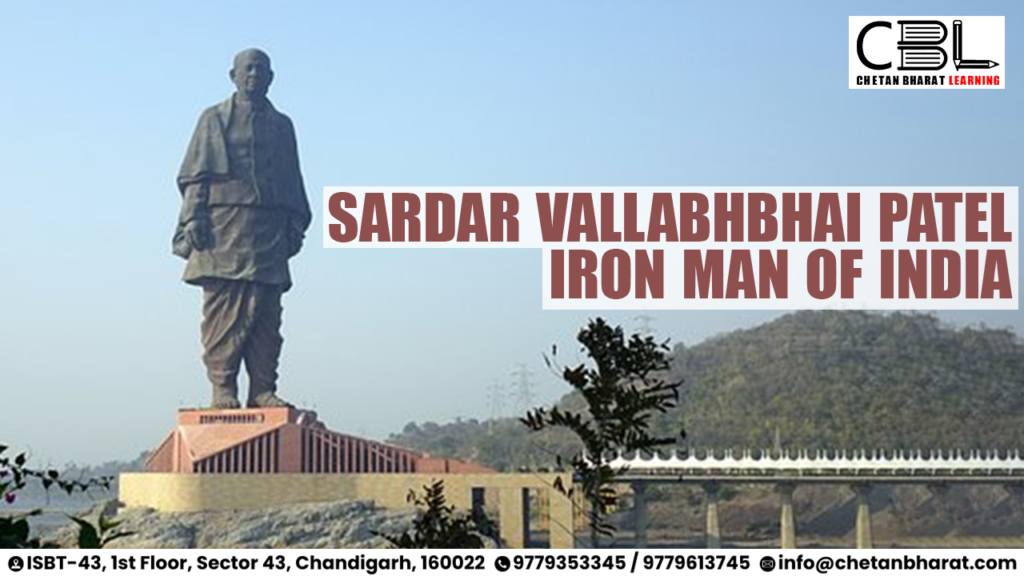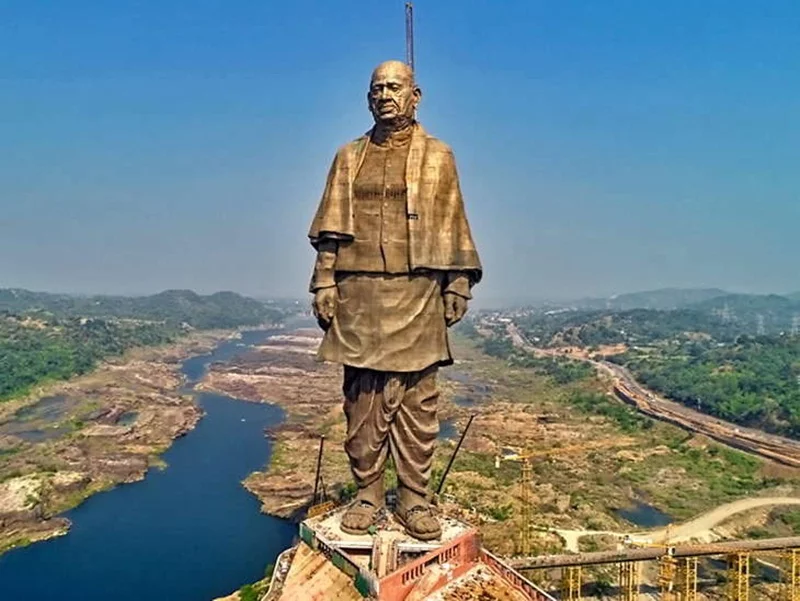
Important for UPSC, State PCS
Prelims: Contribution of Sardar Patel to the Indian Freedom struggle.
Mains: General Studies Paper-1 : Modern India History . Sardar Patel . Mahatma Gandhi . Indian Freedom struggle.
Context :-
National Unity Day, also known as ‘Rashtriya Ekta Diwas‘ is celebrated every year on October 31 to commemorate the birth anniversary of Sardar Vallabhbhai Patel, India’s first Home Minister.
Rashtriya Ekta Diwas
- Since 2014, Rashtriya Ekta Diwas, also known as National Unity Day, has been celebrated every year on October 31 to commemorate the birth anniversary of Sardar Patel.
- It serves as a reminder of his efforts to unite the diverse princely states into a single nation and fosters a spirit of solidarity among the people of the country.
Sardar Patel’s Strategic Diplomacy: Integrating Princely States into the Indian Union
- JawaharLal Nehru asked him to integrate the princely states and with the help of VP Menon, Patel drafted an instrument of accession to be signed by the rulers.
- By signing the instrument, the princely states agreed to hand over control of defence, foreign affairs, and communications to the Union government.
- Patel also introduced the idea of ‘privy purses,’ making payments to the royal families in lieu of their joining India.
- Through his statesmanship, negotiations with princely states through diplomacy and real politics, Sardar Patel managed to bring nearly all of the princely states under the India Union.
- Most of the states joined India, however, some states like Travancore and Bhopal were still hesitant to join India and the Constituent Assembly.
Hyderabad:
- When the Nizam of Hyderabad was contemplating either remaining independent or joining Pakistan, Patel sent a contingent of troops into the state to support the freedom struggle going on in the state against the Nizam.
- Within four days, India had control of Hyderabad.
Jodhpur:
- The Prince of Jodhpur wanted to join Pakistan.
- When Patel was informed of the situation, he immediately offered several benefits to get the Prince to accede to India.
Junagadh:
- The Nawab of Junagadh had accepted Pakistan’s offer.
- As the locals revolted against the Nawab, he fled to Karachi.
- Patel then requested Pakistan to allow organizing a plebiscite in Junagadh.
- He later sent troops to force the annexation of its three principalities.
- The Dewan of Junagadh was forced to accede to India.
- A plebiscite was held, where 91 percent of the population voted to remain in India.
Kashmir:
- The Maharaja of Kashmir, Hari Singh, was reluctant to join either India or Pakistan.
- When armed tribesmen from Pakistan entered Kashmir, the Maharaja appealed to India for help. Patel and Nehru agreed to send in help if Singh signed the instrument of accession.
- Thus, Kashmir was included in the Union of India.
Manipur:
- It became a constitutional monarchy in 1948.
- In the Legislative Assembly of Manipur there were sharp differences over the question of merger of Manipur with India.
- The Maharaja Bodhchandra was pressured by the government of India to sign the instrument of accession.
Sardar Vallabhbhai Patel: A Champion of Civil Disobedience and Unwavering Resolve
- Champion of Civil Disobedience:
- Patel played a pivotal role in campaigns like the Kheda Satyagraha (1918) and Bardoli Satyagraha (1928).
- His organizing skills and dedication earned him the title ‘Sardar’, reflecting his leadership qualities.
- He embraced Gandhi’s principles, leading various movements against unjust taxes and governmental oppression.
- Quit India Movement and Incarceration
- During the Quit India Movement (1942), Patel was at the forefront, advocating for India’s complete independence. Despite imprisonment, his resolve remained unshaken.
Vallabhbhai Patel: Forging India’s Political Unity and Administrative Strength
- Integration of Princely States:
- After India’s independence, Patel faced the daunting task of integrating more than 565 princely states into the Indian Union. His persuasive diplomacy and, when necessary, forceful measures ensured that states like Junagadh and Hyderabad joined India, preserving national unity.
- All India Services: The Steel Frame of India:
- Recognizing the need for a robust administrative structure, Patel conceptualized and established the All India Services.
- He emphasized the importance of service, impartiality, and integrity among civil servants, viewing them as essential to the nation’s progress.
Other Contributions
- Constitutional Role: He headed various Constitutional Committees, such as Advisory Committee on Fundamental Rights, Committee on Minorities and Tribal and Excluded Areas, Provincial Constitution Committee.
- He also served as the first Deputy Prime Minister, as well as the first Home Minister of independent India.
Honours and Recognitions
- Iron Man of India: He earned the reputation of ‘Iron Man’ because of the manner in which he brought about and maintained internal stability as Home Minister in the wake of the partition of the country.
- Bharat Ratna: He was posthumously honoured with the Bharat Ratna, the highest civilian award in the country in 1991.
- Statue of Unity
- The Statue of Unity is built in honor of Sardar Vallabhbhai Patel.
- It was inaugurated on 31st October, 2018 to mark the 143rd birth anniversary of Sardar Patel.
- The Statue of Unity is the tallest statue in the world. At 182 meters, it is 23 meters taller than China’s Spring Temple Buddha statue and almost double the height of the Statue of Liberty (93 meters tall) in the US.

Conclusion
- Sardar Patel’s legacy goes beyond politics; he epitomized unity, resilience, and commitment to the nation’s welfare.
- His life remains a testament to the power of leadership, dedication, and an unwavering love for his country, helping to shape India into a more stronger, unified nation.
CBL Practice Questions for Prelims –
Sardar Vallabhbhai Patel was a key figure in which of the following organizations?
- A) Indian National Congress
- B) All India Muslim League
- C) Hindu Mahasabha
- D) Forward Bloc
Answer: A) Indian National Congress
CBL Mains Practice Question –
Analyze the importance of Sardar Vallabhbhai Patel in the context of Indian unity and integrity in the face of diversity.




Leave a Reply
You must be logged in to post a comment.